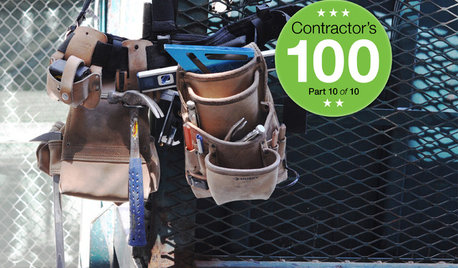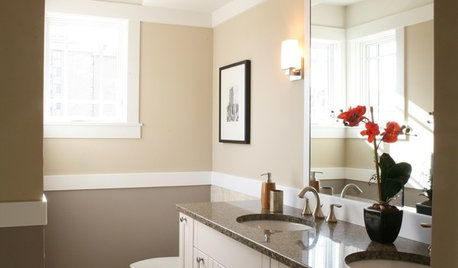How long might my boiler last?
joslin99
12 years ago
Related Stories

KIDS’ SPACES9 Pro Tips to Create a Long-Lasting Kids’ Room
Hear what professional designers have to say about turning your nursery into a kids’ room that will last through the preteen years
Full Story
HOUSEKEEPING20 Things You Might Be Forgetting to Spring-Clean
Clean these often-neglected areas and your house will look and feel better
Full Story
REMODELING GUIDESContractor's Tips: 10 Things Your Contractor Might Not Tell You
Climbing through your closets and fielding design issues galore, your contractor might stay mum. Here's what you're missing
Full Story
REMODELING GUIDESWhy Marble Might Be Wrong for Your Bathroom
You love its beauty and instant high-quality appeal, but bathroom marble has its drawbacks. Here's what to know before you buy
Full Story
WORKING WITH PROS3 Reasons You Might Want a Designer's Help
See how a designer can turn your decorating and remodeling visions into reality, and how to collaborate best for a positive experience
Full Story
FUN HOUZZGuessing Game: What Might Our Living Rooms Say About Us?
Take a shot on your own or go straight to just-for-fun speculations about whose homes these could be
Full Story
BEDROOMSGuessing Game: What Might Our Bedrooms Say About Us?
For entertainment only; actual accuracy may vary. Always don fun goggles and engage your imagination before playing!
Full Story
REMODELING GUIDES8 Remodeling Costs That Might Surprise You
Plan for these potential budget busters to keep a remodeling tab from escalating out of control
Full Story
DECORATING GUIDES9 Design Details You Might Have Overlooked
A designer shares key decorating moves that homeowners often don't think about
Full Story
GREEN BUILDINGWhy You Might Want to Build a House of Straw
Straw bales are cheap, easy to find and DIY-friendly. Get the basics on building with this renewable, ecofriendly material
Full StoryMore Discussions








bus_driver
mike_home
Related Professionals
Riverside Solar Energy Systems · Wakefield Solar Energy Systems · Swansea Solar Energy Systems · Ashburn Home Automation & Home Media · Birmingham Home Automation & Home Media · Chicago Home Automation & Home Media · Delray Beach Home Automation & Home Media · Farmington Home Automation & Home Media · Natick Home Automation & Home Media · Pittsburgh Home Automation & Home Media · Pittsburgh Home Automation & Home Media · Richardson Home Automation & Home Media · Severn Home Automation & Home Media · Robbinsdale Home Automation & Home Media · Delhi Electriciansbrickeyee
mike_home
joslin99Original Author
mike_home
joslin99Original Author
mike_home
SwimIn2012
joslin99Original Author